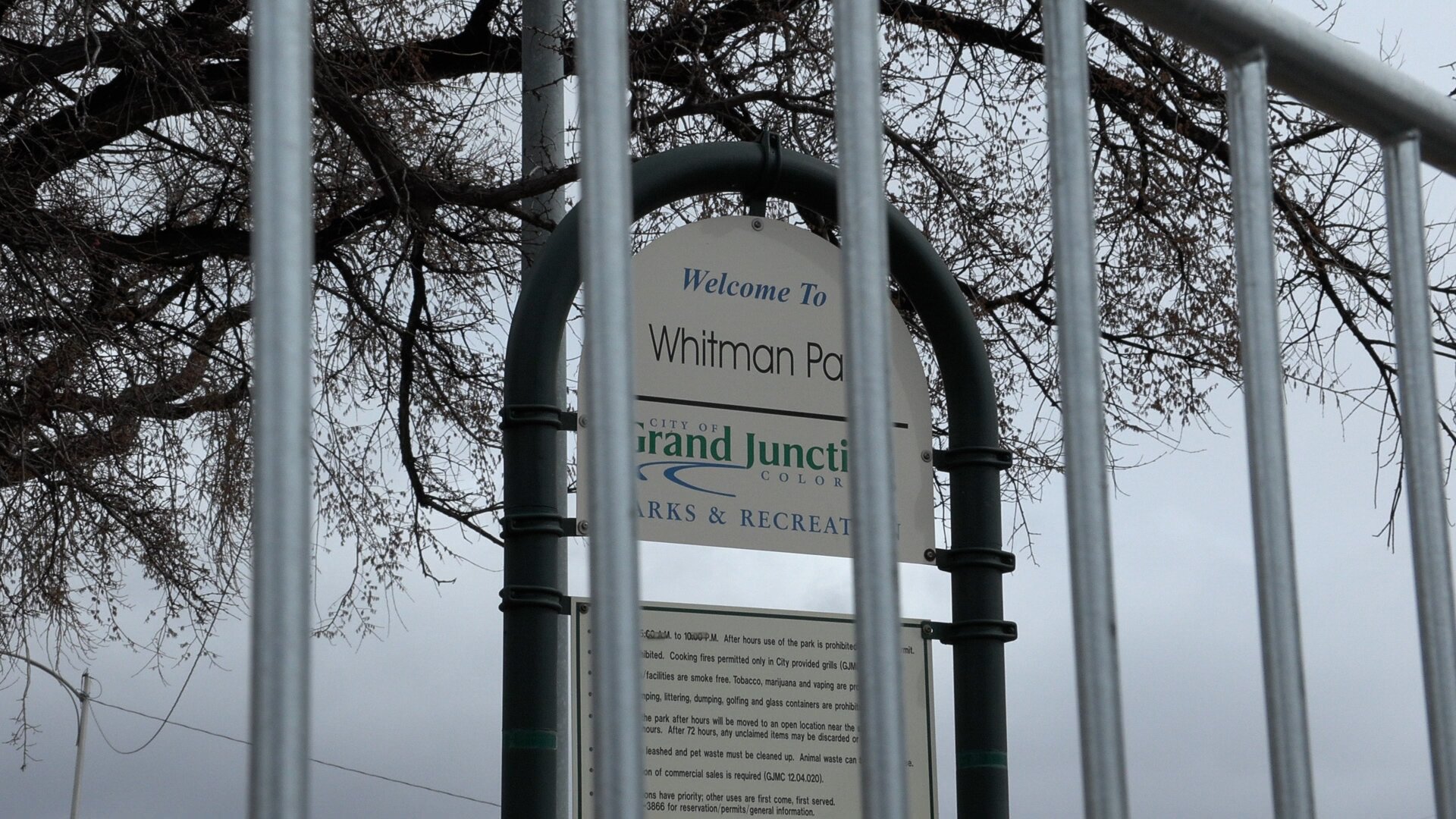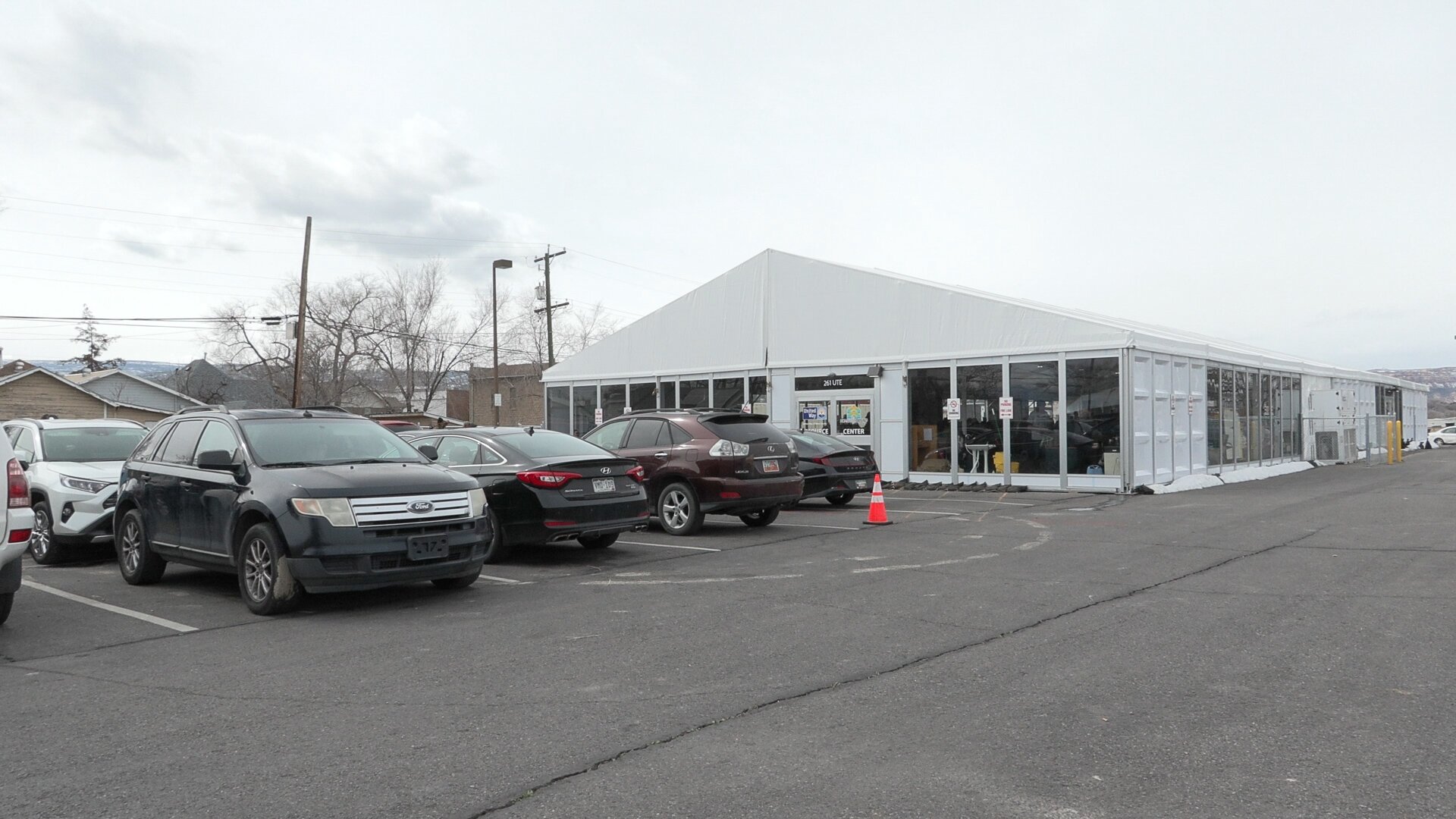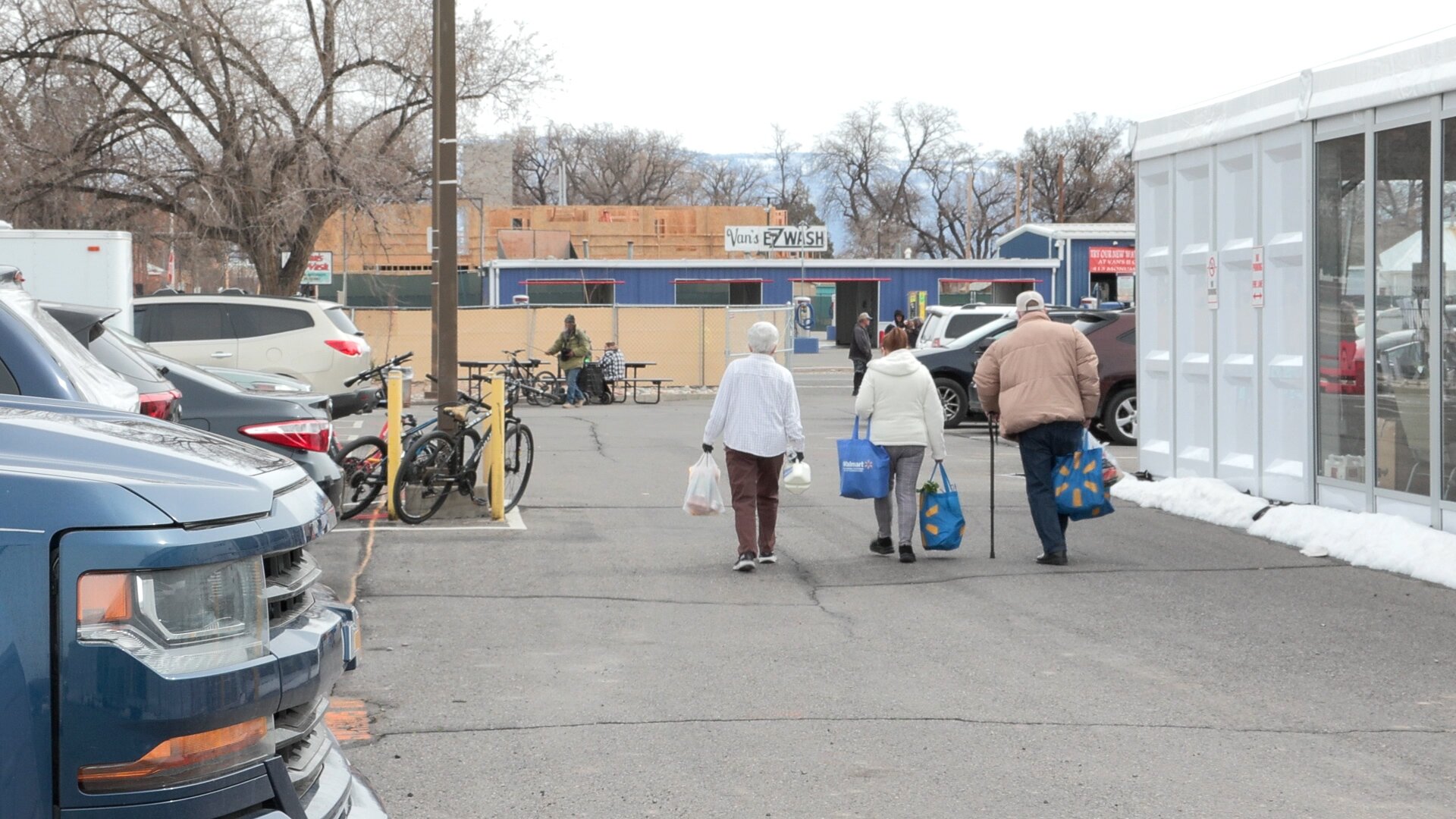Resource Center opens for unhoused people who call Grand Junction home

GRAND JUNCTION, Colo. — Whitman Park was fenced off in September last year. By December, nonprofits and community organizations worked with the city to open a Resource Center for people experiencing homelessness.
The center is a place for the unhoused to rest, get out of the elements, and interact with community organizations during the day.
“We figured that instead of giving people just a safe place to congregate, that if we're going to do that, then we're going to provide services as well,” said Chris Masters, chief of staff of Homewardbound of the Grand Valley, one of the nonprofits operating at the space.
There are an estimated 2,300 people experiencing houselessness in Mesa County, according to a report from the City of Grand Junction. Grand Junction’s unhoused population, as a share of the city’s total, is 14% higher than people experiencing homelessness in Denver, the study concluded.
Homewardbound is responsible for the day-to-day operations of the Resource Center, a “hard-sided pavilion” with a real floor as well as heating and cooling systems. The white tent top building sits at 261 Ute Avenue and Masters said construction on the semi-permanent structure only took about four days.
“[Whitman] park was closed, and that is what lit the fire. And we said, ‘The need is there, we need to do something,'” he said.
The park was a gathering place for people experiencing homelessness, and where faith-based organizations often provided meals during the day. When it closed, organizers were left without a centralized place to interact with their unhoused neighbors. That gap is now filled by the Resource Center.
The city barricaded the park with little warning in the fall of 2023, to “reimagine” its use as an event space and reservation-only park.
Next week, city officials are hosting a meeting to get the public’s ideas for future use of Whitman Park.

The city barricaded the park with little warning in the fall of 2023.
Photo: Joshua Vorse, Rocky Mountain PBS
In the meantime, the Resource Center on Ute Avenue has become the new home of Mutual Aid Partner’s long running distribution day, which started during the COVID-19 pandemic.
Distribution day has evolved from giving out food in the Unitarian Universalist Church parking lot, to an anchor organization with offices in the center.
“The model of Mutual Aid Partners, a distribution event, it evolved from just being a food distribution to expanding the accessibility of those resources by partnering with organizations that were already doing this work,” said Stephania Vasconez, Founder & Executive Director, Mutual Aid Partners.
An average of 131 people have visited the Resource Center each day since it fully opened at the end of January.
From January 30 to March 17, 847 people have used the shower facilities, 57 people got their pets vaccinated, and local churches provided 1,050 meals, according to Homewardbound.

For Masters, and other workers or volunteers at the Resource Center, his own experience with houselessness makes the project even more important.
“When I needed Homewardbound, Homewardbound was there. I want to be that for everybody else,” Masters said.
He came to Grand Junction in 2021 without a place to stay. He was a guest of Homewardbound, for about a month, volunteering, then getting a job with the organization. Homewardbound operates an emergency shelter and other facilities in the Grand Valley.
“One of the things this population cannot stand is for someone who's never been there to tell them how to get out of it, […] that's why I tell my story,” said Masters.
Raven Blackwing, an artist and urban forager, said it took some time for people to feel comfortable in the new space, but the staff and volunteers create a welcoming environment.
“It's more like a community effort and it's a place where they can feel welcome, and I feel welcome here to do my artwork, to meditate,” said Blackwing, who also volunteers with Mutual Aid Partners. Blackwing said he chooses to be unhoused and travel as an urban forager as part of his recovery from alcohol and drug misuse.
The city used $912,400 from the American Rescue Plan Act, out of the total $10 million Grand Junction received, to pay for the Resource Center. Other uses of the ARPA cash include $1.5 million to Grand Valley Catholic Outreach and $3.3 million for a land and building acquisition program.
“The main purpose of it is building community and connection while you're getting basic needs met,” said Vasconez of the center.

She plans to keep adding services in the future of the Resource Center, such as mental health support and programs such as a computer literacy class from the library.
“The best resource here is the people, and people who are willing to just give of themselves, to be compassionate,” said Blackwing. He spends his time making jewelry in the Resource Center and focusing on entrepreneurship.
Albuquerque Health Care for the Homeless runs a similar facility in New Mexico, but besides that, Vasconez says she doesn’t know of other towns that have a space for people experiencing homelessness that combine a warming and dining center with access to nonprofits.
“When there's folks that have come in from other places, that are visiting, even from Denver [they say,] ‘we haven't seen anything like this before,’ so this is really exciting,” she said.
Joshua Vorse is a multimedia journalist at Rocky Mountain PBS. Joshuavorse@rmpbs.org.